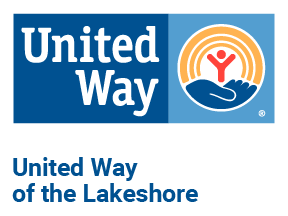
Follow the link below for a free Covid Test Finder:
https://www.michigan.gov/coronavirus/0,9753,7-406-99891_99912-531745--,00.html
The best way to prevent illness is to avoid being exposed to this virus.
The virus is thought to spread mainly from person-to-person.
- Between people who are in close contact with one another (within about 6 feet).
- Respiratory droplets produced when an infected person coughs or sneezes.
- These droplets can land in the mouths or noses of people who are nearby or possibly be inhaled into the lungs.
Download MDHHS Fact Sheet | English | Spanish |
Steps to Protect Yourself:
Clean your hands off
- Wash your hands often with soap and water for at least 20 seconds especially after you have been in a public place, or after blowing your nose, coughing, or sneezing.
- If soap and water are not readily available, use a hand sanitizer that contains at least 60% alcohol. Cover all surfaces of your hands and rub them together until they feel dry.
- Avoid touching your eyes, nose, and mouth with unwashed hands.
Avoid close contact
- Avoid close contact with people who are sick
- Put distance between yourself and other people if COVID-19 is spreading in your community. This is especially important for people who are at higher risk of getting very sick.
Steps to Protect Others:
Stay home if you’re sick:
- Stay home if you are sick, except to get medical care.
- Learn what to do if you are sick.
Cover coughs and sneezes:
- Cover your mouth and nose with a tissue when you cough or sneeze or use the inside of your elbow.
- Throw used tissues in the trash.
- Immediately wash your hands with soap and water for at least 20 seconds. If soap and water are not readily available, clean your hands with a hand sanitizer that contains at least 60% alcohol.
Wear a facemask if you are sick:
- If you are sick: You should wear a facemask when you are around other people (e.g., sharing a room or vehicle) and before you enter a healthcare provider’s office. If you are not able to wear a facemask (for example, because it causes trouble breathing), then you should do your best to cover your coughs and sneezes, and people who are caring for you should wear a facemask if they enter your room. Learn what to do if you are sick.
- If you are NOT sick: You do not need to wear a facemask unless you are caring for someone who is sick (and they are not able to wear a facemask). Facemasks may be in short supply and they should be saved for caregivers
Clean and disinfect:
- Clean AND disinfect frequently touched surfaces daily. This includes tables, doorknobs, light switches, countertops, handles, desks, phones, keyboards, toilets, faucets, and sinks.
- If surfaces are dirty, clean them: Use detergent or soap and water before disinfection.
For more information go to cdc.gov/coronavirus or click the link and for more updates please call; 800-232-4636
Know When It Is Safe To Leave Home! Click Here to download the Stay Home Infographic.
What should I do if I think I have been exposed to the COVID-19 virus?
If you have had close contact (within 6 feet/2 meters) with someone who is confirmed to have, or being evaluated for, COVID-19 infection, you should:
- Monitor your health starting from the day you first had close contact with the person and continue for 14 days after you last had close contact with the person.
Watch for these signs and symptoms:
o Fever of 100.4°F/38°C or higher—Take your temperature twice a day.
o Coughing.
o Shortness of breath or difficulty breathing.
o Other early symptoms to watch for are chills, body aches, sore throat, headache,
diarrhea, nausea/vomiting, and runny nose.
- If you develop fever or any of these symptoms, call your healthcare provider right away.
- Before going to your medical appointment, be sure to tell your healthcare provider about your close contact with someone who is confirmed to have or is being evaluated for COVID-19. This will help the healthcare provider’s office take steps to keep other people from getting infected. Ask your healthcare provider to call the local or state health department.
- If you do not have any symptoms, you can continue with your daily activities, such as going to work, school, or visiting other public areas.
For more information like this visit; 211sandiago.org or click the link.

